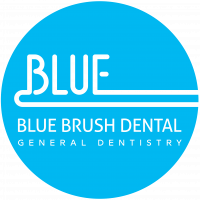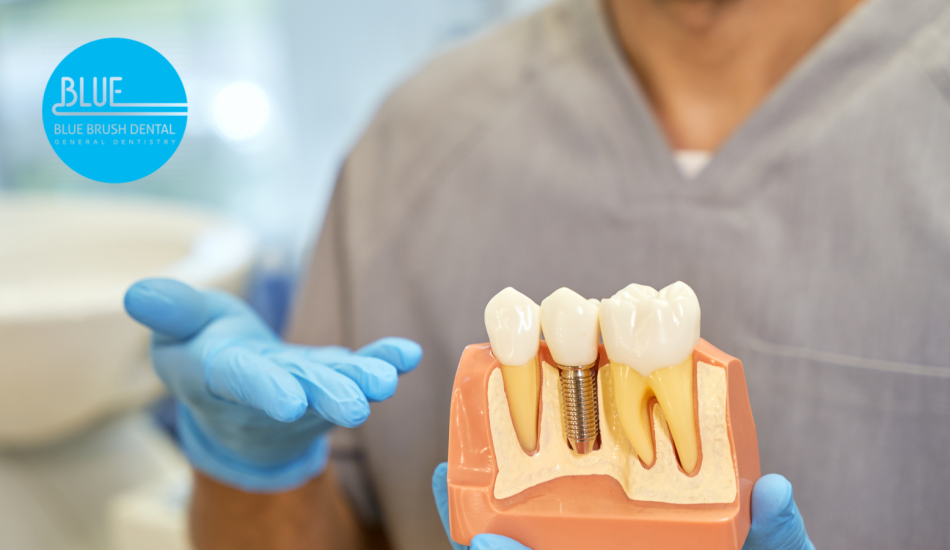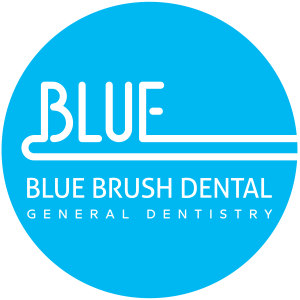Dental implants can significantly improve your quality of life, but their high cost often poses a financial challenge. Many find themselves frustrated and anxious about whether their insurance will cover this essential procedure—and this frustration is more common than most people think.
Understanding the complexities of insurance coverage for dental implants is crucial to overcoming these financial barriers. This guide aims to provide you with a detailed roadmap to navigate the insurance maze, making it easier to secure coverage for your dental implants.
Understanding Insurance Coverage
Navigating insurance coverage for dental implants requires a clear understanding of your plan’s specifics. Knowing what your insurance covers can significantly impact your strategy and reduce out-of-pocket expenses.
Types of Insurance Plans
Different types of insurance plans offer varying levels of coverage for dental implants. Understanding the distinctions between these plans is essential to determine which one best fits your needs. Below are the specific types of insurance plans you need to take note of:
- Employer-Sponsored Plans: Often more comprehensive, these plans may cover a significant portion of dental implant costs. Check with your HR department for details.
- Private Dental Insurance: These plans vary widely, with some covering implants under certain conditions. It’s crucial to read the fine print and understand what’s included.
- Medicaid and Medicare: Medicaid might cover implants if necessary, though this varies by state. Medicare usually doesn’t cover dental procedures unless they are part of another covered treatment.
Understanding these different plans can help you choose the best coverage for your dental implant needs.
Coverage Limitations
Insurance coverage for dental implants often comes with various limitations. Many dental plans have annual maximums, typically ranging from $1,000 to $2,000, which might not cover the total cost of implants. Additionally, some plans include waiting periods before major procedures like implants are covered. Exclusions are also common, with certain plans outright excluding implants or only covering specific parts of the procedure.
Medical vs Dental Insurance
Understanding medical and dental insurance differences is critical for maximizing your coverage. Dental insurance typically covers preventive care and minor procedures but may include significant procedures like implants under specific conditions. On the other hand, medical insurance might cover dental implants if necessary due to a medical condition, such as after an accident or a congenital defect.
Specifically, their difference is the following:
- Dental Insurance: Covers preventive care, fillings, and sometimes significant procedures like implants if specified in the plan.
- Medical Insurance: Covers implants if necessary due to a medical condition, which can significantly offset costs.
Knowing which type of insurance applies to your situation can help you better navigate the approval process and secure the necessary coverage for your dental implants.
Proving Medical Necessity

Proving medical necessity is crucial to getting dental implants covered by insurance. This process involves thorough documentation and demonstrating the procedure’s health benefits.
Documenting Your Case
To build a strong case, gather comprehensive medical and dental records. Include X-rays, treatment plans, and detailed notes from your dentist explaining why dental implants are necessary. Photographs showing the condition of your teeth before and after any preliminary treatments can be very persuasive. Your documentation should clearly outline how the implants will improve your overall health and address specific medical issues.
Leveraging Pre-existing Conditions
If you have pre-existing conditions, use them to strengthen your case for dental implants. Conditions like diabetes, osteoporosis, or chronic periodontal disease can significantly affect oral health and justify the need for implants. Documenting how these conditions have impacted your dental health and explaining how implants will mitigate these effects can make your case more compelling to insurers.
Getting Professional Support
Enlisting professional support can enhance the credibility of your claim. Obtain letters from your dentist and other relevant healthcare providers detailing the medical necessity of the implants. An emergency dentist can also provide valuable input, especially if you have faced acute dental issues that make implants a critical solution. These professional endorsements can significantly influence the insurance company’s decision, demonstrating that your need for dental implants is urgent and medically justified.
Maximizing Your Benefits
Maximizing your insurance benefits for dental implants involves strategic planning and a thorough understanding of your coverage options. By coordinating benefits and timing your procedure wisely, you can significantly reduce out-of-pocket costs.
Combining Dental and Medical Coverage
One effective strategy is to combine dental and medical insurance to cover different aspects of your implant procedure. Dental insurance might cover the implant, while medical insurance can cover related surgeries if necessary.
- Coordinate Benefits: Contact your dental and medical insurance providers to discuss coordinating benefits. This can help share the costs and maximize your coverage.
- Dual Coverage: If you have multiple dental plans, use them to increase the amount covered. This is often possible if you have plans through numerous jobs or a spouse.
By strategically combining these coverages, you can significantly reduce the financial burden of dental implants.
Timing Your Procedure
Timing your dental implant procedure can also impact your insurance benefits. If you’ve already met your annual deductible, scheduling the implant before the end of the year can maximize your benefits. Alternatively, planning at the beginning of a new policy year can take advantage of a fresh annual maximum. Consider the timing carefully to ensure you maximize your available benefits.
Using FSAs and HSAs
Flexible Spending Accounts (FSAs) and Health Savings Accounts (HSAs) are valuable tools for managing healthcare costs, including dental implants. FSAs allow you to use pre-tax dollars for medical expenses, and HSAs offer similar benefits with higher contribution limits. These accounts can cover out-of-pocket expenses not covered by insurance, easing the financial burden. Check the specific rules and contribution limits for your FSA or HSA to optimize their use for your dental implant procedure.
Navigating the Approval Process
Navigating the approval process for dental implants requires a clear understanding of the necessary steps and documentation. Following the correct procedures can improve your chances of getting insurance to cover the costs.
Pre-authorization Steps
Pre-authorization is often a crucial step in securing insurance coverage for dental implants. This process involves submitting a request to your insurance provider to approve the procedure before it is performed.
Below is your guide for pre-authorization steps:
- Initial Request: Submit a detailed pre-authorization request with your dentist’s description of the procedure, its necessity, and a treatment plan.
- Supporting Documentation: Include relevant medical and dental records, such as X-rays, photographs, and letters from your dentist and medical professionals.
- Insurance Follow-Up: Regularly follow up with your insurance provider to check the status of your request and provide any additional information if needed.
- Consultation with Your Dentist: Contact your dentist for any further documentation or clarification required by the insurance company.
Ensuring your pre-authorization request is detailed and supported by comprehensive documentation can significantly improve your chances of approval.
Required Documentation
Having the correct documentation is essential for the approval process. Your insurance provider will require specific documents to evaluate your request. Some of the said documents are the following:
- Treatment Plan: Provide a detailed treatment plan from your dentist, including a breakdown of the procedure and associated costs.
- Medical Necessity Letters: Include letters from your dentist and any relevant medical professionals explaining the medical necessity of the implants.
- Dental Records: Submit comprehensive dental records, including X-rays, photographs, and past dental work records.
- Health History: Provide a detailed health history that shows any pre-existing conditions that may necessitate dental implants.
- Insurance Forms: Complete all necessary forms accurately and thoroughly, ensuring all details are noticed.
- Cost Estimates: Include a detailed cost estimate for the entire procedure, itemizing each part of the implant process.
These documents help demonstrate the necessity of the implants and support your case for coverage.
Appealing Denials
If your insurance claim for dental implants is denied, don’t be discouraged. You have the right to appeal the decision. Start by carefully reviewing the denial letter to understand the reasons for the denial. Gather supporting documentation addressing these reasons and resubmit your claim with a detailed explanation. Include any new information or clarifications that might strengthen your case. Persistence is vital in the appeals process, and providing comprehensive, accurate information can help overturn the denial.
Alternative Coverage Options

If traditional insurance doesn’t cover your dental implants, exploring alternative coverage options can help manage the costs. These options can provide financial relief and make dental implants more affordable.
Dental Discount Plans
Dental discount plans offer a way to reduce the cost of dental implants without traditional insurance. These plans require an annual membership fee in exchange for discounted rates on various dental procedures, including oral surgery. While they don’t provide coverage per se, the savings can be significant, making it a viable option for many.
Healthcare Credit Cards
Healthcare credit cards, like CareCredit, provide a financing option specifically for medical expenses. These cards often offer low or no-interest promotional periods, allowing you to spread the cost of dental implants over time. They can be a practical solution if you need to manage expenses immediately and pay them off gradually without incurring high interest rates.
Crowdfunding and Grants
Crowdfunding and grants are unconventional but effective ways to fund dental implants. Platforms like GoFundMe allow you to raise money from friends, family, and strangers who want to support your cause. Additionally, some non-profits and charitable organizations offer grants for dental work, providing financial assistance to those in need. Research and apply to these programs to help cover the costs of your implants.
Choosing the Right Dental Clinic
Choosing the right dental clinic is crucial for ensuring you get your dental implants covered by insurance. At Blue Brush Dental, we understand the complexities of navigating insurance and offer support every step of the way. Here are a few reasons why choosing us is the right choice:
- Insurance Expertise: Our team has extensive experience working with various insurance providers to help you maximize your benefits.
- BBD Smile Program: We offer the BBD Smile Program for those without traditional dental insurance. This savings plan provides the highest-quality dental care from xrays, exams to cleanings at an affordable fee.
- Experienced Team: Our dentists and oral surgeons are highly skilled and experienced in implant procedures, ensuring you receive top-notch care.
- Advanced Technology: We use the latest technology to ensure precise and effective treatment, increasing the likelihood of successful insurance claims.
Don’t let insurance challenges prevent getting the dental implants you need. Call Blue Brush Dental today to schedule your consultation and learn more about how we can help you navigate the insurance process and take advantage of our BBD Smile Program.


